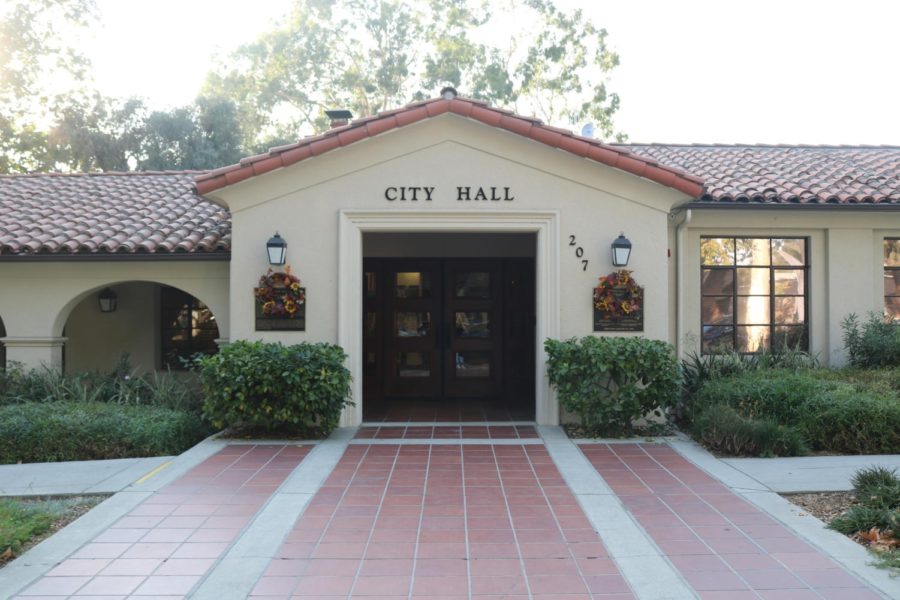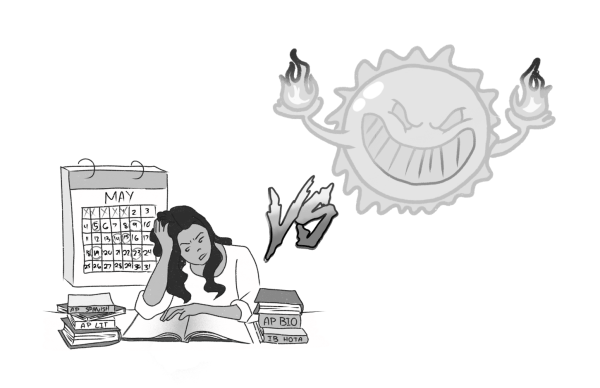After Intense Controversy, Claremont Citizens Reject a Sales Tax Increase
On Nov. 5, Claremont residents voted on Measure CR. If passed, the measure would have increased Claremont’s current tax of 9.5% by 0.75%. It was defeated by a relatively narrow margin; 50.86% of voters voted “no.” Many in opposition to the bill argued in distrust of Claremont City Council.
Over the last two years, the City of Claremont has been facing a budget deficit. Although the city has already made cuts to its operations in an attempt to balance the diminishing budget, there is still a need to secure more funds, which is why, in July 2018, Claremont City Council proposed Measure CR. This Measure would reportedly help sustain city programs and services, but when it came time to vote on the measure on Nov. 5, 2019, Claremont citizens ultimately voted “no” on the proposed increase.
Currently, Claremont has a sales tax of 9.5%. If Measure CR had been approved, the sales tax would increase by 0.75%, raising it to the state’s maximum tax rate of 10.25%. The election for Measure CR took place on Nov. 5. Residents who voted “yes” for the tax increase back the city’s efforts in supporting the General Fund. Residents who voted “no” now hope that the city will find alternate methods of raising money for Claremont.
City Council hoped that Measure CR would be able to fund many different programs and city projects. Specifically, City Hall aimed to use the money raised by the increased sales tax to finance police protection for Claremont citizens, special events, youth and senior programs, and generally to preserve the city. Council member Jennifer Stark, a supporter of Measure CR who has deep roots in Claremont, did not want to see the City decline due to the deficit of $1 million, which is why City Hall initially suggested the tax increase.
“I grew up in Claremont and raised my three children here,” Stark said. “I think Claremont is a beautiful town and I deeply value all that it has to offer and I believe that keeping the .75% extra sales tax in Claremont to help fund all the services and programs that I appreciate is the prudent thing to do.”
As of now, the city receives 1% of the sales tax; the remainder is distributed to the State and County. Raising the sales tax in Claremont would secure an estimated $2-2.5 million annually. The appeal of keeping the city programs persuaded many residents to vote “yes”.
Many of those who voted “no” wished to keep Claremont affordable for residents, shoppers, and out-of-town guests. Measure CR is a general tax, which means that there is no allotted spot for the money. Those who were against the tax believed that City Hall has a reputation of making false and exaggerated claims, which only reinforced the fact that the Measure is a blank check; City Council would decide where and how to distribute the money. Additionally, raising the sales tax could render low-income families and local businesses vulnerable. Donna Lowe, a representative from Transparent Claremont, an organization devoted to promoting financial stability for Claremont, was one of the many to vote “no” for this very reason.
“The city needs to learn to live within the means they have,” Lowe said. “This tax increase is only a band-aid that will last 3 years at most, until the next structural deficits plague the city again. Other cities similar in size and tax structure have been able to balance their budgets. Why can’t we?”
After a failed attempt to raise $125,000,000 to create Claremont’s own water company in 2014, many people’s trust in City Hall faltered. Tentative trust in the city, the thought of potentially spending more when shopping, and desiring to support low-income families and small businesses, has dissuaded many residents to vote no on the tax increase. As a result, the “no” vote won, but only by a narrow margin, with a total of 50.86%.
This controversial topic has been the center of attention for some time, and with the results in, those who voted “yes” are undoubtedly disappointed. City officials will have to find alternate methods of maintaining financial balance. Setting aside the discontent of a seemingly detrimental loss, the small margin between the “yes” and “no” votes only displays that many Claremont residents are invested in the city, which will strengthen Claremont for years to come.
Hello there! Our goal is to provide relavent, engaging journalism for readers of all ages. Your donation will support the student journalists of the Wolfpacket at Claremont High School, and will allow us to purchase equipment, print our monthly issues, and enter in journalism competitions. We appreciate your consideration!

Alina Kim is a freshman at CHS, and this is her first year as a reporter for the Wolfpacket. Aside from writing, Kim spends her free time ice skating,...

Hana Hashioka is a senior attending Claremont High School. This is her first year contributing to the Wolfpacket, and she is currently a photographer....











